Being Human: The Failings of Hal Yorke [meta on Hal's passive outlook]
It’s always hard to lose faith in someone. The way I see it, it’s twice harder when you’re losing faith in a fictional character because they are supposed to be infallible. Not in the sense of being perfect or logical (that would be boring, wouldn’t it?), but because with enough dedication you can excuse their mistakes with poor writing, you can come up with a plethora of headcanons and fanon motivations to explain why they are suddenly acting in such a disappointing fashion. Once you’re comfortable with your newfound explanation, things get better.
Except it doesn’t always work. Sometimes you look back and realize that your favourite character has always been just that much of a dick. Or they’ve always had these precise personality traits that piss you off so much. You wonder how you failed to notice it before; but now that you have, you might try to analyze them and move on.
All of this drama is due to me realizing what exactly I hate about Hal in series 5 and also realizing that it has always been there. I’m doing my best to make myself clear but I did love him once, so bear with me.

Hal is passive. He is incredibly, terrifyingly, inexcusably unable to look after himself. Well, the guy did have six mothers, so maybe that’s one of the definitive characteristics, but I’m not a psychoanalyst, so let’s not go there. Hal is a spoilt kid that nobody can say no to. It goes beyond Tom and Alex, beyond Leo and Pearl, all the way back to Mary and Sylvie (as much as I’d like to pretend those two never happened, they are useful as examples). When Hal is in his “good” state, he’s in a constant BSOD condition. Yes, I get it: he is a vampire, he’s very old and very addicted; that doesn’t give him the right to become a burden to everyone he meets.
Taking into account the DoDD-related retcon, we know that there are some “registered” vampires that receive blood as a sort of a government-sponsored aid. I’m not sure how exactly that works since we were never shown that, but Rook offers Hal the same conditions when he offers him to take Mr Snow’s place. So theoretically speaking, controlling bloodlust is not impossible. For some reason, though, it’s impossible for Hal. Why? Because he’s a drama queen. Again, I may not know much about dealing with recovering addicts, but I am quite certain that nothing works if you don’t try. Hal… doesn’t try. Well, he does, but let me get back to it later.
Hal’s greatest crisis moments are usually accompanied by incredible displays of passive attitude. When he runs off with Leo, he is so weak and so out of control that Leo has to board up the windows for two whole years to stop Hal from leaping off the wagon. When Leo dies, Hal’s first instinct is to drop the rehab; his second one is to literally sit on the couch and do nothing. “This is me holding on by my fingernails,” he says, and looks scandalized when Annie points out that he’d been dry (read: he’d been doing nothing) for fifty-five years.

What is the point of living if you don’t do anything except feeling sorry for yourself? I don’t know, ask Hal. I can understand Hal’s reluctance and fear to leave his room in those first two years (especially considering the rule that every time he reverts to “bad” Hal, he becomes more of a monster), but 55 years later? That’s not fear and that’s certainly not concern for the welfare of the humans that would find themselves near him; that’s laziness and habit.
The way Hal acts is the way any attention-seeker does (even those who don’t realize it themselves). It’s exacerbated by the fact that he is surrounded by chronic enablers. Sylvie downright tells him that killing her is not his fault; Mary turns down countless doors because she is under the illusion (which he does nothing to dispel) that she is the only thing keeping him on the straight and narrow; and God knows how many others were there before Leo. (Let's not forget the girls Kirby mentioned who still seem to have the hots for Hal in the afterlife.)
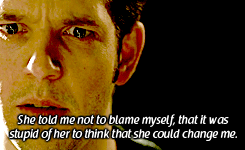
(c) emmaswanned
Series 5 bends Alex towards that angle as well: she suddenly starts “respecting” Hal for his attempts to stay dry (and that is after he recruits Crumb, thus becoming indirectly responsible for the massacre in Crumb’s office; refuses to help Crumb until Rook tells him to, thus becoming indirectly responsible for many more of Crumb’s and Alan’s victims; and after she learns that he has been deceiving Mary for 250 years). Hal is like an android programmed to constant regressive and destructive angst; he even comes with his own instruction manual.
In 5x03, when talking to Tom in the woods, Hal delivers his famous speech on monsters inside:
Let's say you have a monster inside you, all the time, pulling at your strings, tormenting you, itching to see you fail. Join the club. Come on in, because if you do, if all of that is true, this is where you prove your worth. By fighting it, by defying it, by proving it wrong, By standing toe to toe with it every day, and spitting in its face.
Except… when does Hal actually fight his monster? He has a (presumably long) line of women doing it for him. And Leo. He is released from his house arrest in 5x01 pretty much because Tom and Alex agree that he’s ready (and can you blame them? After taking out buckets of shit - literally - for a month!) - and he immediately goes on to prove them wrong. That’s not “trying”. In 5x05, he once again makes it look like the decision is theirs: he fails to control his bloodlust, gets into a ridiculous deal with Natasha and when Alex and Tom refuse to let it slide, he flips out and recruits an entire pub full of people. My attitude towards the aftermath of Natasha’s death is negative on both sides (let’s face it, the scene is as illogical as it gets), but it was Hal’s mistake to blame his own actions - be they real or not - on Tom and Alex. Yes, they told him to leave; no, it didn’t give him the right to tear down everything they’d done to keep his “inner monster” at bay. Throughout series 5, Hal has been consistently undermining their efforts (sometimes they didn’t even get to find that out, like in Larry’s case) and then shielding himself with his “other personality”, the infamous bad Hal, while nothing in his general behaviour suggests that he does indeed have split personalities (the scene in 5x04, especially coupled with the deleted scene from 5x04, in which he tricks Crumb and Alan into believing that he can indeed revert after one sip, confuses rather than clears things up; and don’t even get me started on how jarringly inconsistent it looks compared to Hal’s general fluctuations between states). Even the story about Sylvie, in which he mentions that he reverted surprisingly abruptly, still doesn’t confirm the split personalities theory; for all we know, he just got tired of denying himself what he wanted most. Again, that is not “trying”.
In his more honest moments Hal even admits that trying is pointless.
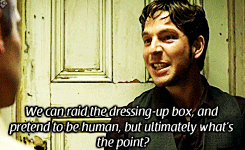
(c) emmaswanned
That is, pointless, according to him. Considering that his words parallel those of Herrick (one of the few vampires who have always been, as Mitchell puts it, “consistent”), I doubt he actually believes that he can beat the bloodlust. That is, he’s given up from the get-go. Tom (and the viewer, I suppose) should of course assume this is blood speaking - but again, remember Herrick's words about vampirism not changing personality but liberating it? In that case, this is indeed Hal for once being honest.
The funny thing - and the thing that did blind me in series 4, not letting me see that Hal has always been like this - is that I do believe he was trying to get better for a bit after he’d just got to Honolulu Heights - and that was when Annie made him. Annie is the only person around him who doesn’t come off as an enabler. For all that Alex yells at him in 5x01, she is just as enabling as all others. Annie isn’t. Annie isn’t afraid to trust him with Eve - but Annie also isn’t afraid to distrust him enough to kick him out in 4x04 regardless of how many people it might kill. Annie doesn’t put Hal first. Annie gives him assignments, tasks, responsibilities; she pushes him out into the world because he must earn his keep; she declares they are a team and she accepts him as a member of a family, and that, I believe, does him good. In series 4, Hal is struggling with his addiction, but it comes off as his own decision. In 4x03, he tries to manipulate Annie by indicating that if he were to be deprived of his creature comforts, he would not be responsible for his actions (implying that Annie would be). Yet the very next episode, she doesn’t hesitate to show him the door. In my opinion, it takes certain courage too. The difference between this scene and Alex kicking Hal out in 5x05 is that Annie never let Hal blame her for anything. What Hal does is an elaborate torture: he sets himself up to fail and sets others up to take the fall.
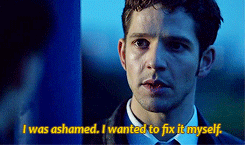
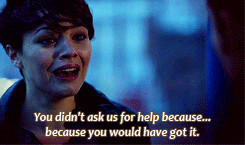
(c) jennalouscoleman
It is so deeply ingrained that he must ask for help. Of course he can't do anything alone if neither he, nor his friends believe it. That never worked really on Annie, which was why she was good for him. Looking after Eve gave him something to do because Eve was the only person in the house who needed care more than Hal did. With Annie and Eve gone, alas, he went back to his old ways very quickly. Leo’s approach - “keeping busy, keeping sane” - is probably good but fundamentally wrong in being coupled with allowing Hal to withdraw into his own world where he is the centre of the universe. He transfers this attitude into the real world and then gets surprised when it doesn’t work.
In light of that, suddenly giving Hal a messianic complex and setting him up as the world saviour seems even more nonsensical.
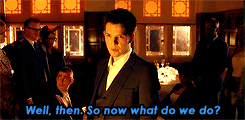
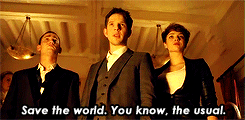
(c) beinghumanbbc
I’ve already ranted about the idiocy of putting Hal in charge of things, but it hadn’t occurred to me to look at the bigger picture. That is, the ultimate bad Hal, the Hal from Eve’s future. I used to laugh at his inept leadership (admittedly a headcanon of mine because we know nothing of how things were in reality), but something tells me that the famous saying “Evil always has a plan” has no place here. Hal is a poster boy, according to Eve.
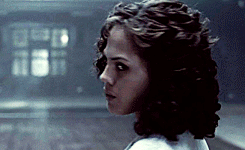
(c) emmaswanned
You know what poster boys usually are? Puppets. Judging by the state of the country as shown in the flash-forwards, it’s not as much of a vampire paradise as they’d hoped it would be. There is a pregnancy embargo and a very high mortality rate among humans, which begs the question: what do vampires eat? In my headcanon, Hal’s “super-effective” leadership leads to blood rationing and vampire decimation; pretty sure that wasn’t what the vampires wanted when they made him their leader. Moreover, with the attitude Hal has already displayed after switching to the “good” cycle, it makes me think he will not survive another cycle because this time the mess is too big to clean up.
As I’ve often said (perhaps too frequently as it is), I wouldn’t have any problem with this if the show acknowledged that Hal was not trying to get better. To give credit where it’s due, he gets called out on his bullshit several times: by Mary, by Alex, by Cutler - but he manages to mostly turn a deaf ear to all that reasoning. Hardly surprising.
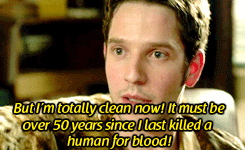
(c) emmaswanned
It all culminates in his getting “rewarded” (if that’s the way you choose to see it) by humanity and his transgressions are never mentioned again because hey, he’s human now, humans are all cute and fluffy.
But even so - and we finally enter the realm of complete YMMV - the problem is not that Hal is a dick and everyone lets it slide. The problem is that he is passive. He lets others shoulder the blame for his actions and he never gets to be responsible for any mistake he makes. And that is something I can’t abide in both real people and fictional characters. Perhaps I should have seen it from the start, since this is by no means an epic revelation. In a way, this realization makes things easier for me. Disliking Hal doesn’t hurt me as much as it did. Because I never should have liked him in the first place; this is not my type of a character.
Except it doesn’t always work. Sometimes you look back and realize that your favourite character has always been just that much of a dick. Or they’ve always had these precise personality traits that piss you off so much. You wonder how you failed to notice it before; but now that you have, you might try to analyze them and move on.
All of this drama is due to me realizing what exactly I hate about Hal in series 5 and also realizing that it has always been there. I’m doing my best to make myself clear but I did love him once, so bear with me.

Hal is passive. He is incredibly, terrifyingly, inexcusably unable to look after himself. Well, the guy did have six mothers, so maybe that’s one of the definitive characteristics, but I’m not a psychoanalyst, so let’s not go there. Hal is a spoilt kid that nobody can say no to. It goes beyond Tom and Alex, beyond Leo and Pearl, all the way back to Mary and Sylvie (as much as I’d like to pretend those two never happened, they are useful as examples). When Hal is in his “good” state, he’s in a constant BSOD condition. Yes, I get it: he is a vampire, he’s very old and very addicted; that doesn’t give him the right to become a burden to everyone he meets.
Taking into account the DoDD-related retcon, we know that there are some “registered” vampires that receive blood as a sort of a government-sponsored aid. I’m not sure how exactly that works since we were never shown that, but Rook offers Hal the same conditions when he offers him to take Mr Snow’s place. So theoretically speaking, controlling bloodlust is not impossible. For some reason, though, it’s impossible for Hal. Why? Because he’s a drama queen. Again, I may not know much about dealing with recovering addicts, but I am quite certain that nothing works if you don’t try. Hal… doesn’t try. Well, he does, but let me get back to it later.
Hal’s greatest crisis moments are usually accompanied by incredible displays of passive attitude. When he runs off with Leo, he is so weak and so out of control that Leo has to board up the windows for two whole years to stop Hal from leaping off the wagon. When Leo dies, Hal’s first instinct is to drop the rehab; his second one is to literally sit on the couch and do nothing. “This is me holding on by my fingernails,” he says, and looks scandalized when Annie points out that he’d been dry (read: he’d been doing nothing) for fifty-five years.

What is the point of living if you don’t do anything except feeling sorry for yourself? I don’t know, ask Hal. I can understand Hal’s reluctance and fear to leave his room in those first two years (especially considering the rule that every time he reverts to “bad” Hal, he becomes more of a monster), but 55 years later? That’s not fear and that’s certainly not concern for the welfare of the humans that would find themselves near him; that’s laziness and habit.
The way Hal acts is the way any attention-seeker does (even those who don’t realize it themselves). It’s exacerbated by the fact that he is surrounded by chronic enablers. Sylvie downright tells him that killing her is not his fault; Mary turns down countless doors because she is under the illusion (which he does nothing to dispel) that she is the only thing keeping him on the straight and narrow; and God knows how many others were there before Leo. (Let's not forget the girls Kirby mentioned who still seem to have the hots for Hal in the afterlife.)

(c) emmaswanned
Series 5 bends Alex towards that angle as well: she suddenly starts “respecting” Hal for his attempts to stay dry (and that is after he recruits Crumb, thus becoming indirectly responsible for the massacre in Crumb’s office; refuses to help Crumb until Rook tells him to, thus becoming indirectly responsible for many more of Crumb’s and Alan’s victims; and after she learns that he has been deceiving Mary for 250 years). Hal is like an android programmed to constant regressive and destructive angst; he even comes with his own instruction manual.
In 5x03, when talking to Tom in the woods, Hal delivers his famous speech on monsters inside:
Let's say you have a monster inside you, all the time, pulling at your strings, tormenting you, itching to see you fail. Join the club. Come on in, because if you do, if all of that is true, this is where you prove your worth. By fighting it, by defying it, by proving it wrong, By standing toe to toe with it every day, and spitting in its face.
Except… when does Hal actually fight his monster? He has a (presumably long) line of women doing it for him. And Leo. He is released from his house arrest in 5x01 pretty much because Tom and Alex agree that he’s ready (and can you blame them? After taking out buckets of shit - literally - for a month!) - and he immediately goes on to prove them wrong. That’s not “trying”. In 5x05, he once again makes it look like the decision is theirs: he fails to control his bloodlust, gets into a ridiculous deal with Natasha and when Alex and Tom refuse to let it slide, he flips out and recruits an entire pub full of people. My attitude towards the aftermath of Natasha’s death is negative on both sides (let’s face it, the scene is as illogical as it gets), but it was Hal’s mistake to blame his own actions - be they real or not - on Tom and Alex. Yes, they told him to leave; no, it didn’t give him the right to tear down everything they’d done to keep his “inner monster” at bay. Throughout series 5, Hal has been consistently undermining their efforts (sometimes they didn’t even get to find that out, like in Larry’s case) and then shielding himself with his “other personality”, the infamous bad Hal, while nothing in his general behaviour suggests that he does indeed have split personalities (the scene in 5x04, especially coupled with the deleted scene from 5x04, in which he tricks Crumb and Alan into believing that he can indeed revert after one sip, confuses rather than clears things up; and don’t even get me started on how jarringly inconsistent it looks compared to Hal’s general fluctuations between states). Even the story about Sylvie, in which he mentions that he reverted surprisingly abruptly, still doesn’t confirm the split personalities theory; for all we know, he just got tired of denying himself what he wanted most. Again, that is not “trying”.
In his more honest moments Hal even admits that trying is pointless.

(c) emmaswanned
That is, pointless, according to him. Considering that his words parallel those of Herrick (one of the few vampires who have always been, as Mitchell puts it, “consistent”), I doubt he actually believes that he can beat the bloodlust. That is, he’s given up from the get-go. Tom (and the viewer, I suppose) should of course assume this is blood speaking - but again, remember Herrick's words about vampirism not changing personality but liberating it? In that case, this is indeed Hal for once being honest.
The funny thing - and the thing that did blind me in series 4, not letting me see that Hal has always been like this - is that I do believe he was trying to get better for a bit after he’d just got to Honolulu Heights - and that was when Annie made him. Annie is the only person around him who doesn’t come off as an enabler. For all that Alex yells at him in 5x01, she is just as enabling as all others. Annie isn’t. Annie isn’t afraid to trust him with Eve - but Annie also isn’t afraid to distrust him enough to kick him out in 4x04 regardless of how many people it might kill. Annie doesn’t put Hal first. Annie gives him assignments, tasks, responsibilities; she pushes him out into the world because he must earn his keep; she declares they are a team and she accepts him as a member of a family, and that, I believe, does him good. In series 4, Hal is struggling with his addiction, but it comes off as his own decision. In 4x03, he tries to manipulate Annie by indicating that if he were to be deprived of his creature comforts, he would not be responsible for his actions (implying that Annie would be). Yet the very next episode, she doesn’t hesitate to show him the door. In my opinion, it takes certain courage too. The difference between this scene and Alex kicking Hal out in 5x05 is that Annie never let Hal blame her for anything. What Hal does is an elaborate torture: he sets himself up to fail and sets others up to take the fall.


(c) jennalouscoleman
It is so deeply ingrained that he must ask for help. Of course he can't do anything alone if neither he, nor his friends believe it. That never worked really on Annie, which was why she was good for him. Looking after Eve gave him something to do because Eve was the only person in the house who needed care more than Hal did. With Annie and Eve gone, alas, he went back to his old ways very quickly. Leo’s approach - “keeping busy, keeping sane” - is probably good but fundamentally wrong in being coupled with allowing Hal to withdraw into his own world where he is the centre of the universe. He transfers this attitude into the real world and then gets surprised when it doesn’t work.
In light of that, suddenly giving Hal a messianic complex and setting him up as the world saviour seems even more nonsensical.


(c) beinghumanbbc
I’ve already ranted about the idiocy of putting Hal in charge of things, but it hadn’t occurred to me to look at the bigger picture. That is, the ultimate bad Hal, the Hal from Eve’s future. I used to laugh at his inept leadership (admittedly a headcanon of mine because we know nothing of how things were in reality), but something tells me that the famous saying “Evil always has a plan” has no place here. Hal is a poster boy, according to Eve.

(c) emmaswanned
You know what poster boys usually are? Puppets. Judging by the state of the country as shown in the flash-forwards, it’s not as much of a vampire paradise as they’d hoped it would be. There is a pregnancy embargo and a very high mortality rate among humans, which begs the question: what do vampires eat? In my headcanon, Hal’s “super-effective” leadership leads to blood rationing and vampire decimation; pretty sure that wasn’t what the vampires wanted when they made him their leader. Moreover, with the attitude Hal has already displayed after switching to the “good” cycle, it makes me think he will not survive another cycle because this time the mess is too big to clean up.
As I’ve often said (perhaps too frequently as it is), I wouldn’t have any problem with this if the show acknowledged that Hal was not trying to get better. To give credit where it’s due, he gets called out on his bullshit several times: by Mary, by Alex, by Cutler - but he manages to mostly turn a deaf ear to all that reasoning. Hardly surprising.

(c) emmaswanned
It all culminates in his getting “rewarded” (if that’s the way you choose to see it) by humanity and his transgressions are never mentioned again because hey, he’s human now, humans are all cute and fluffy.
But even so - and we finally enter the realm of complete YMMV - the problem is not that Hal is a dick and everyone lets it slide. The problem is that he is passive. He lets others shoulder the blame for his actions and he never gets to be responsible for any mistake he makes. And that is something I can’t abide in both real people and fictional characters. Perhaps I should have seen it from the start, since this is by no means an epic revelation. In a way, this realization makes things easier for me. Disliking Hal doesn’t hurt me as much as it did. Because I never should have liked him in the first place; this is not my type of a character.